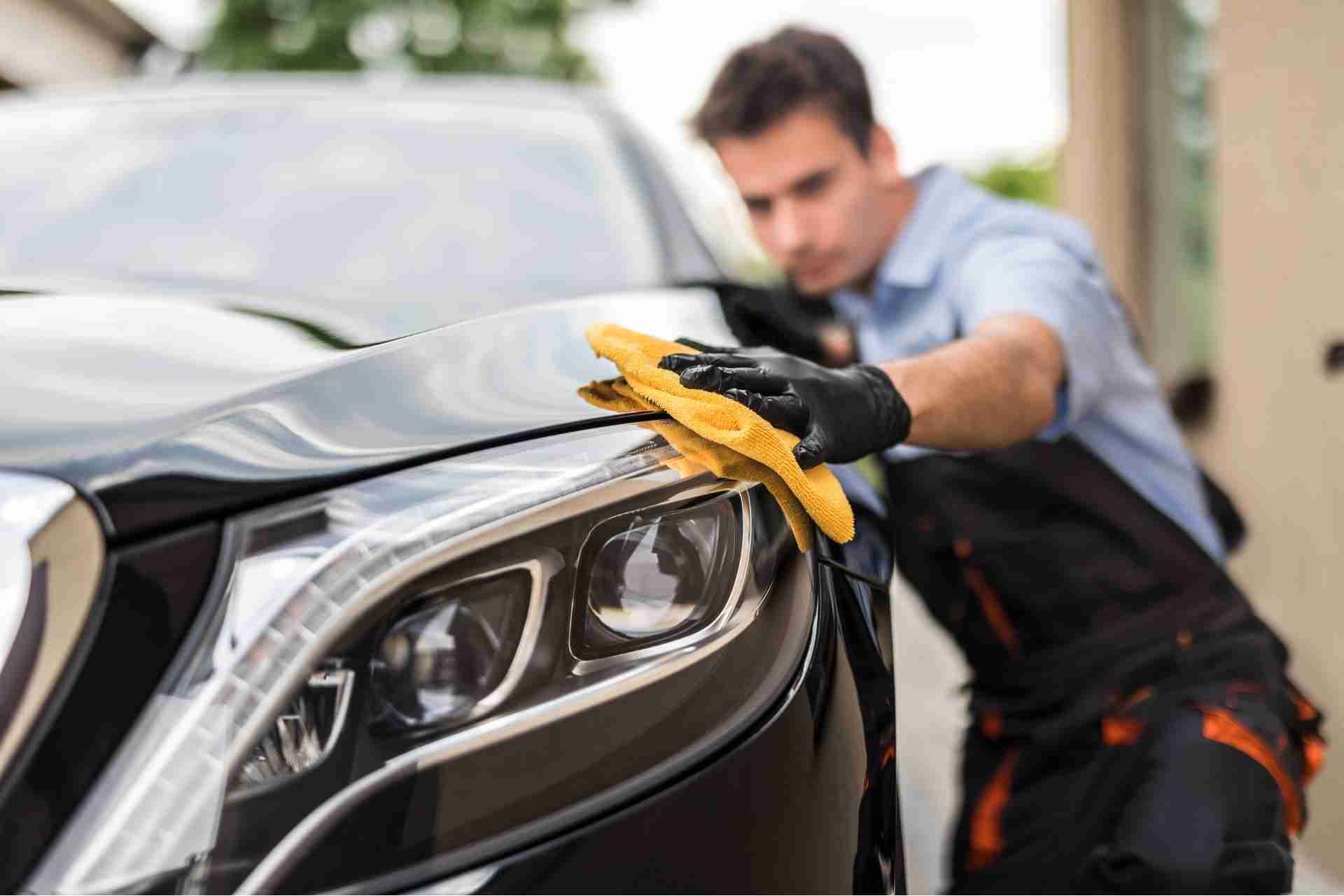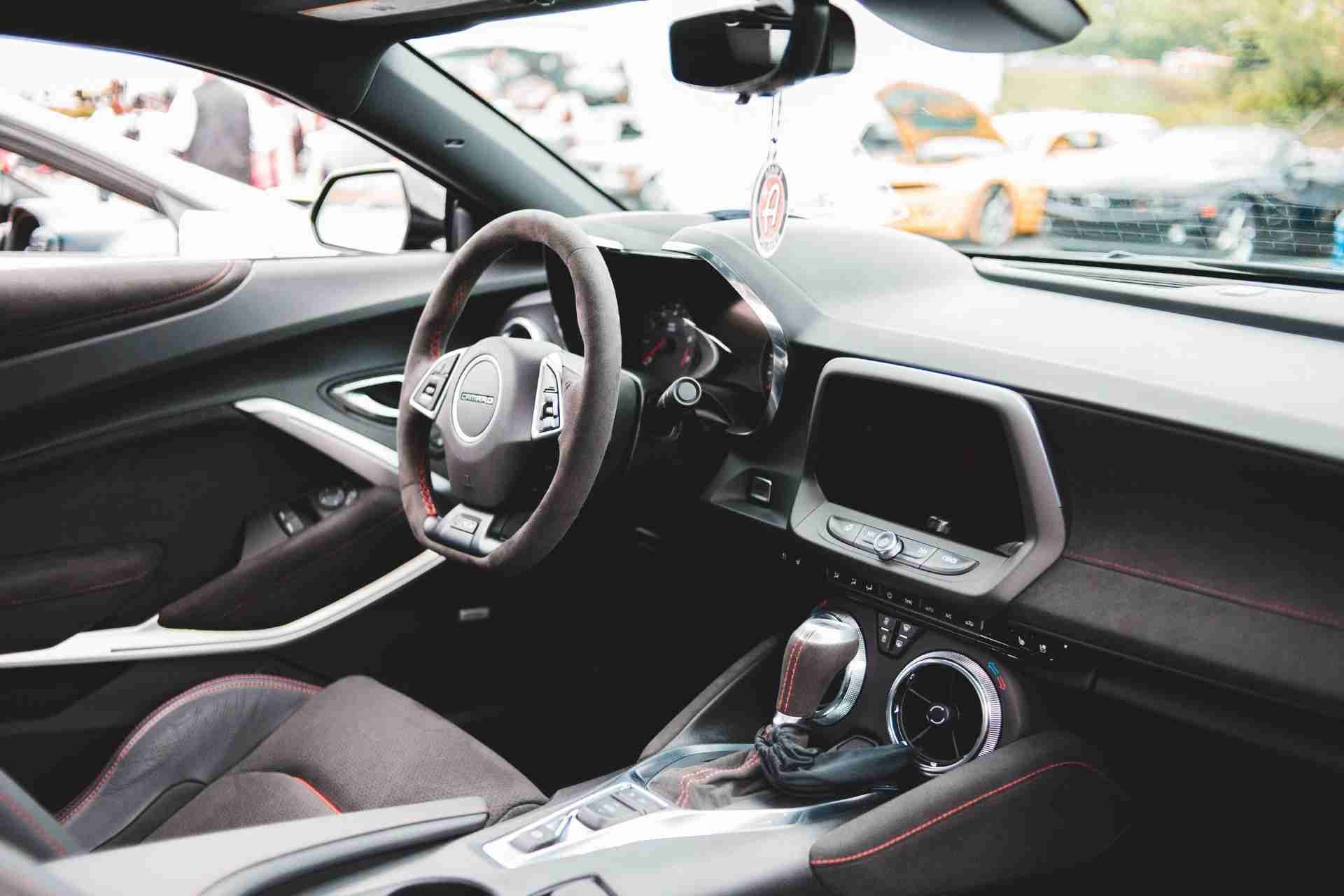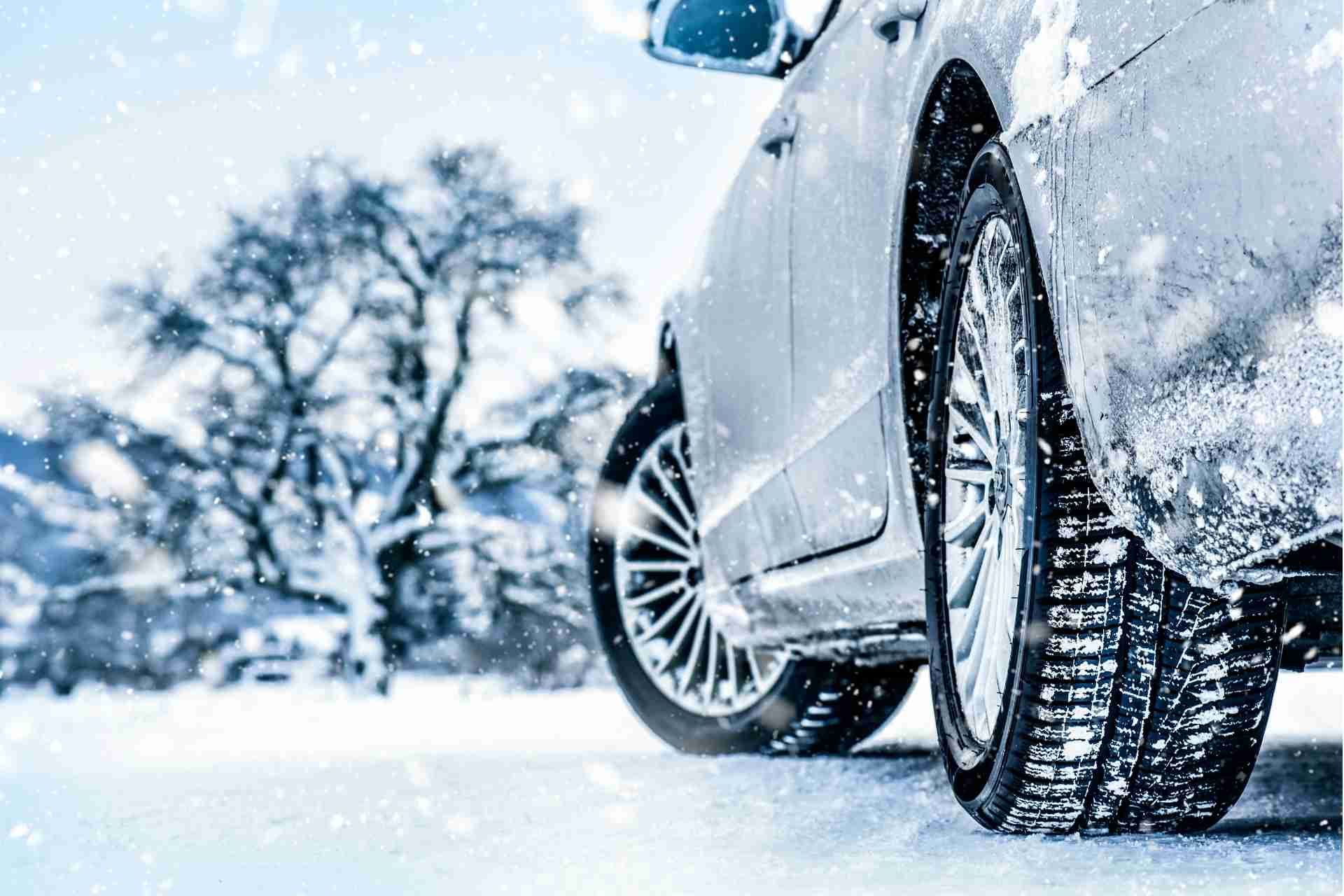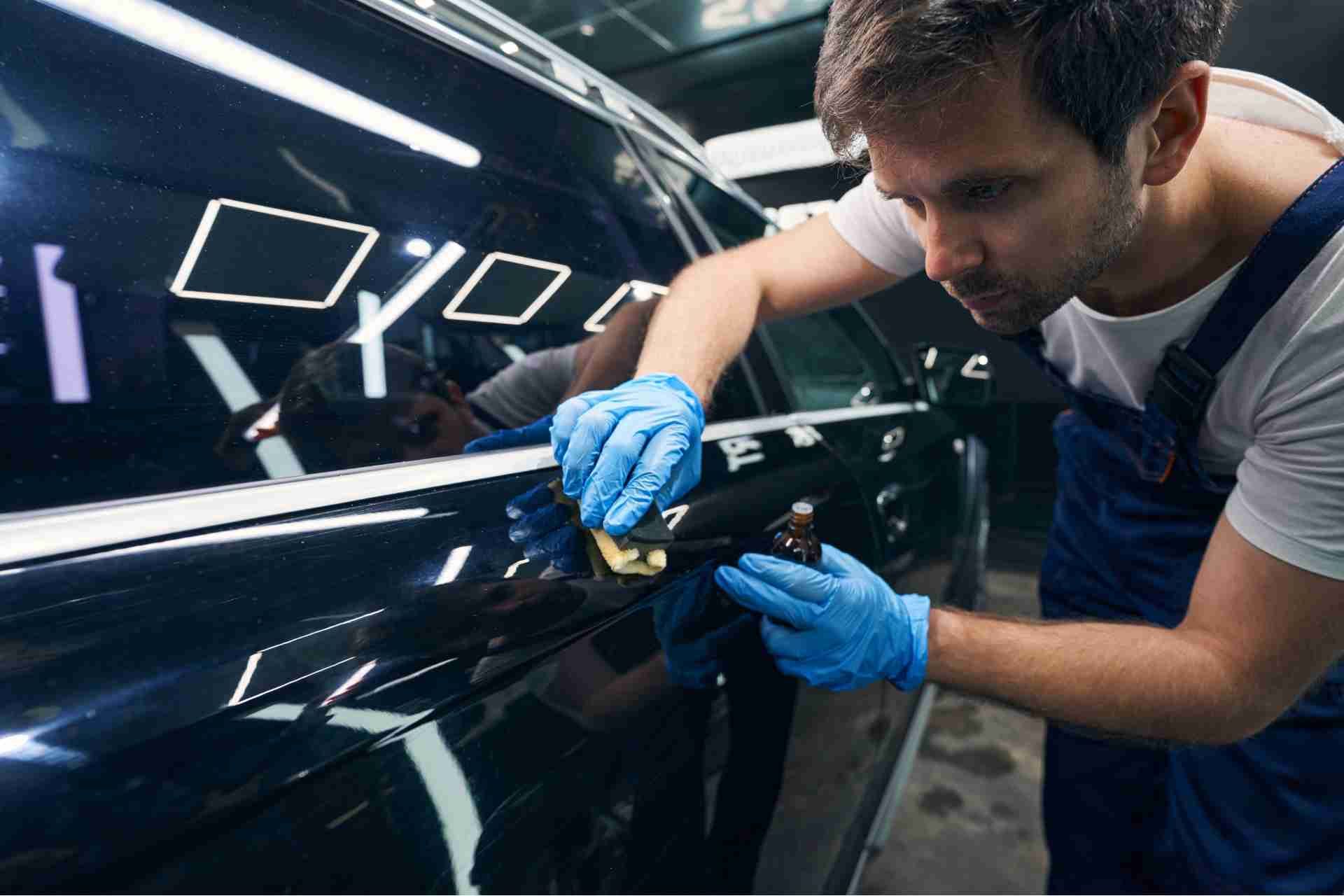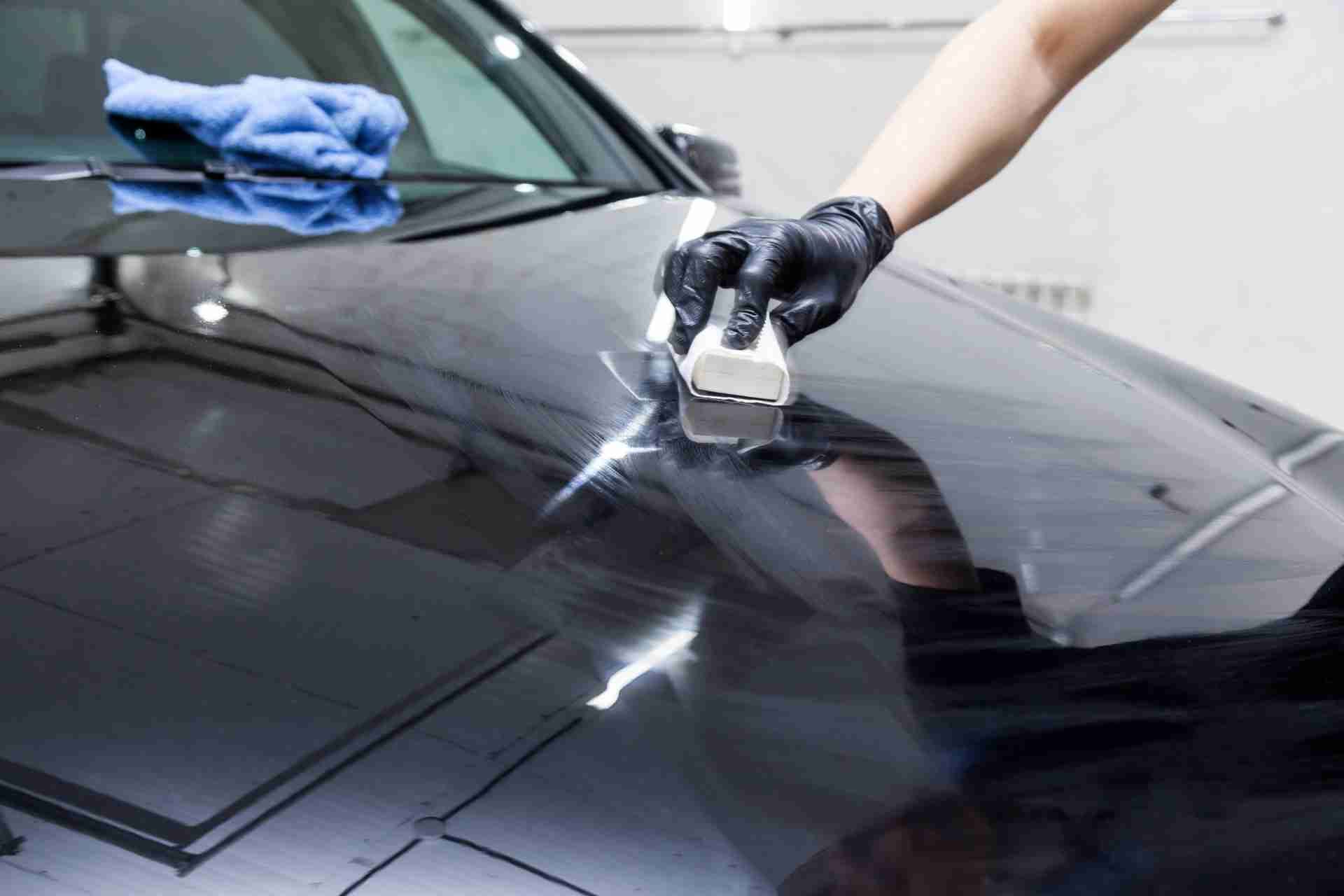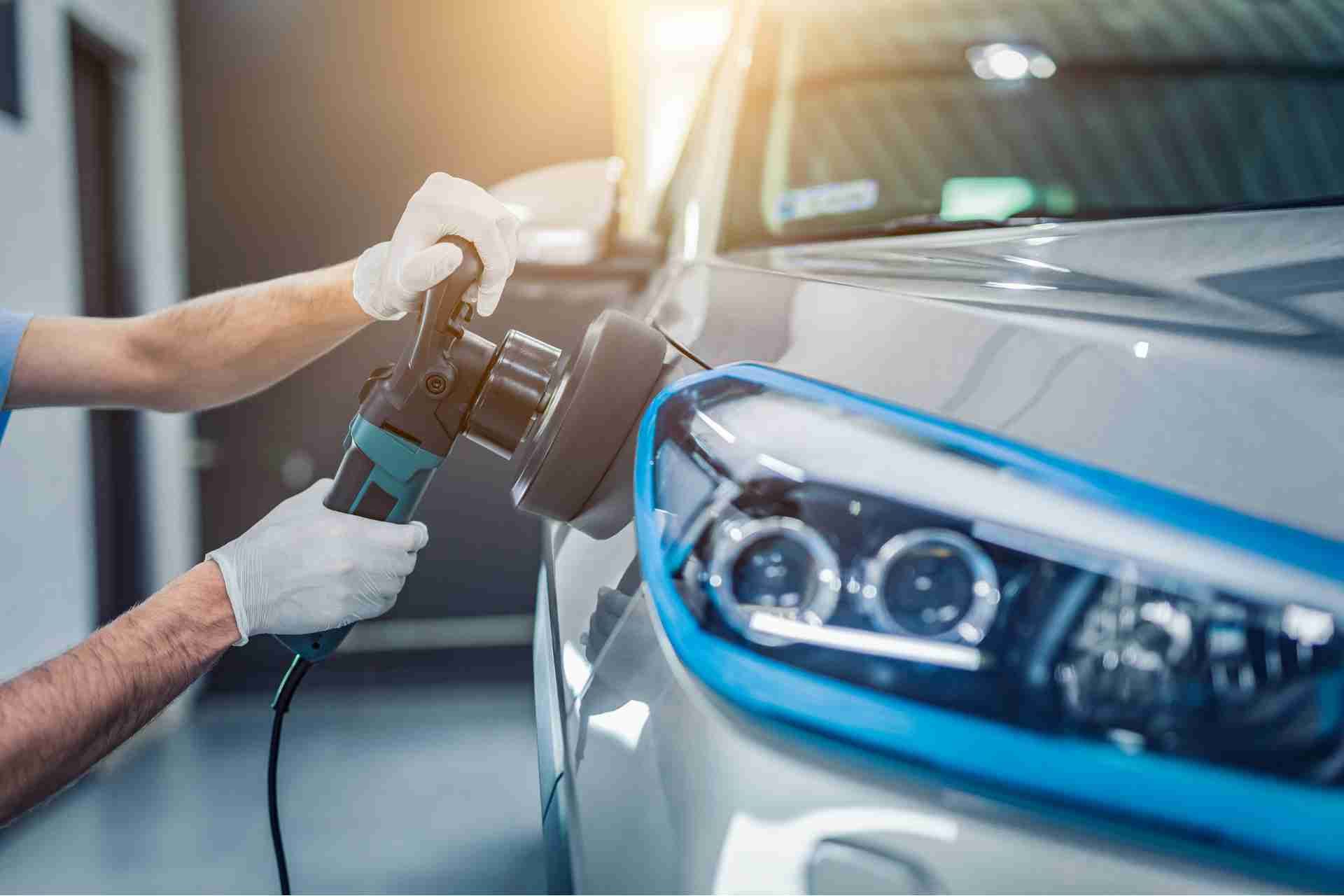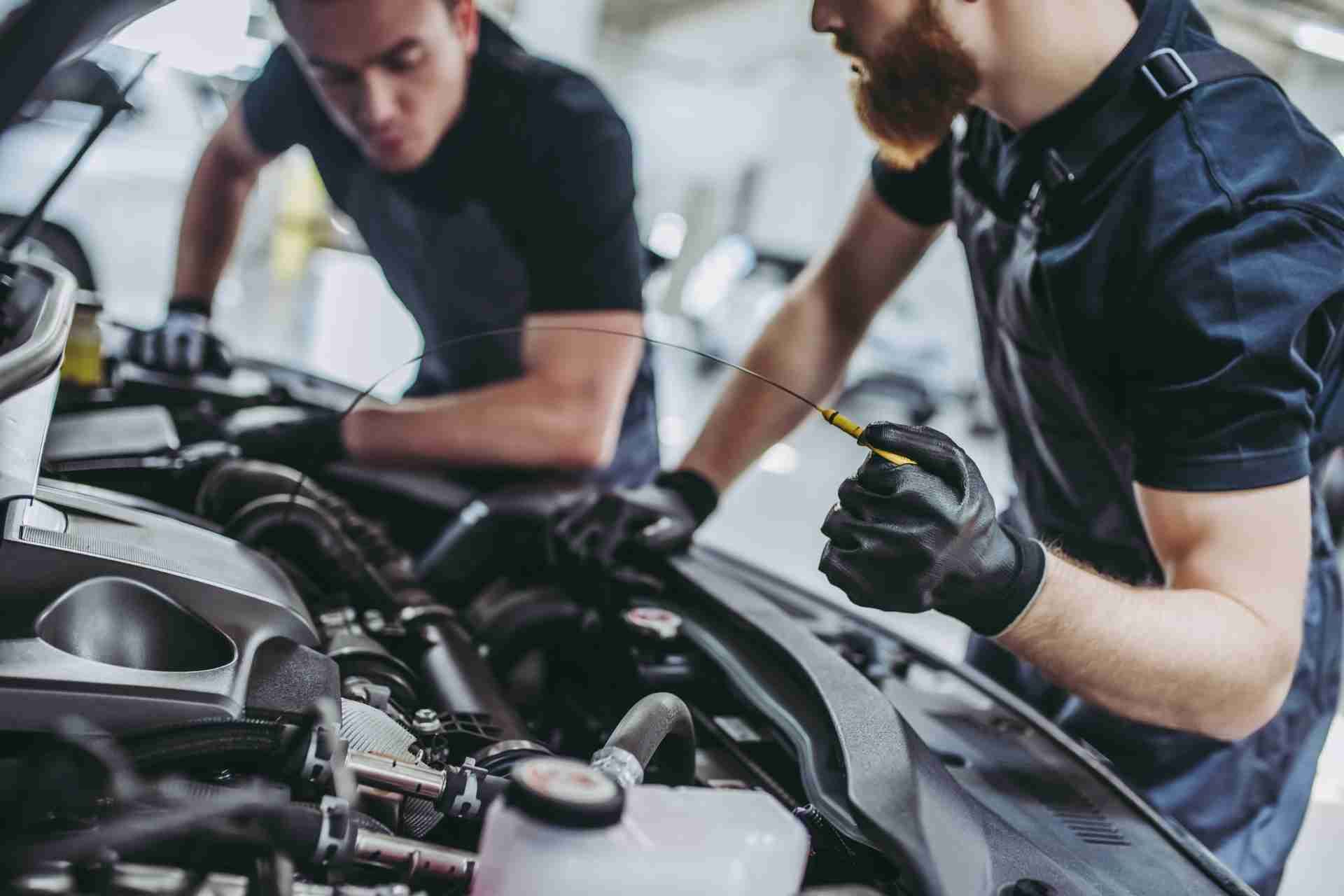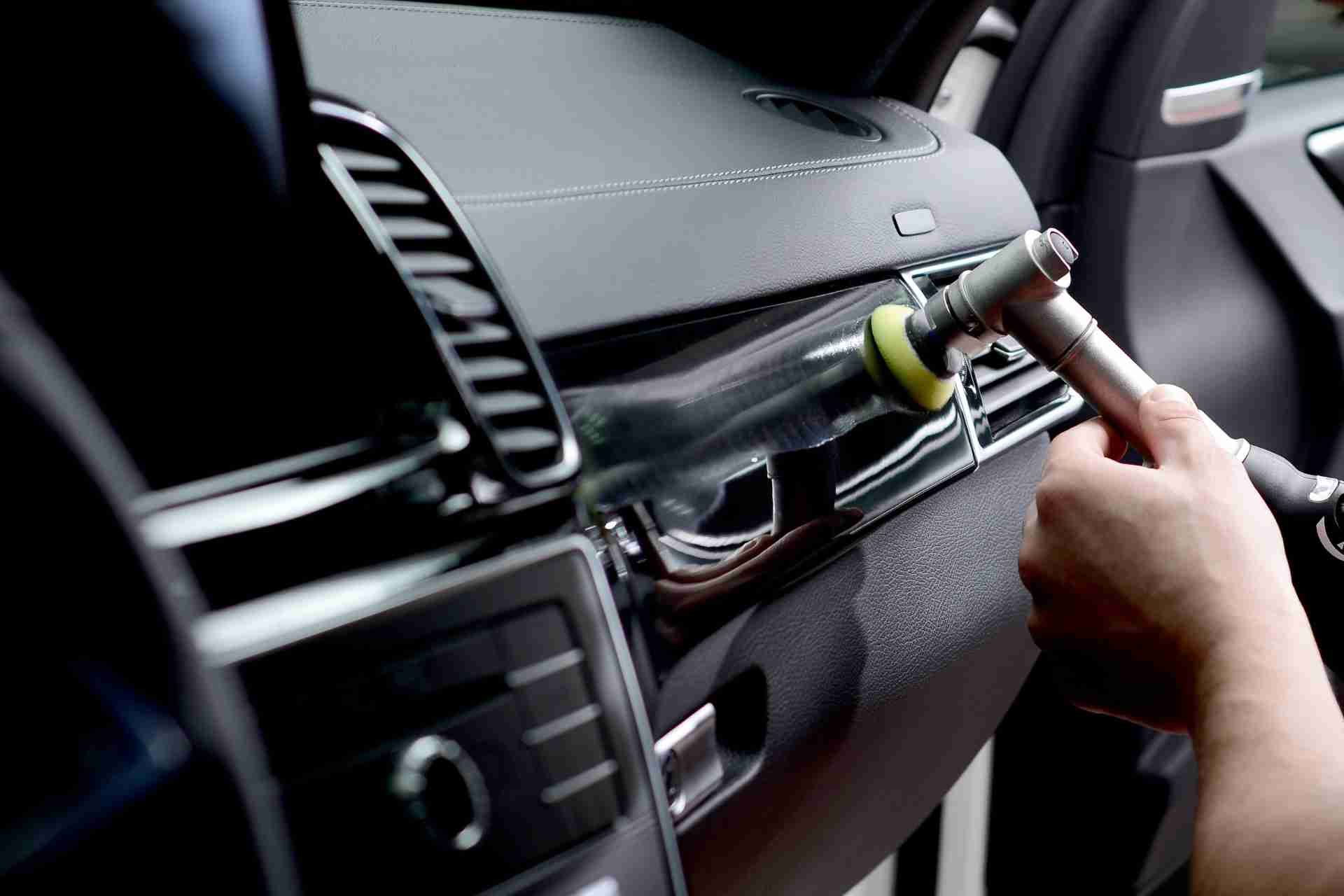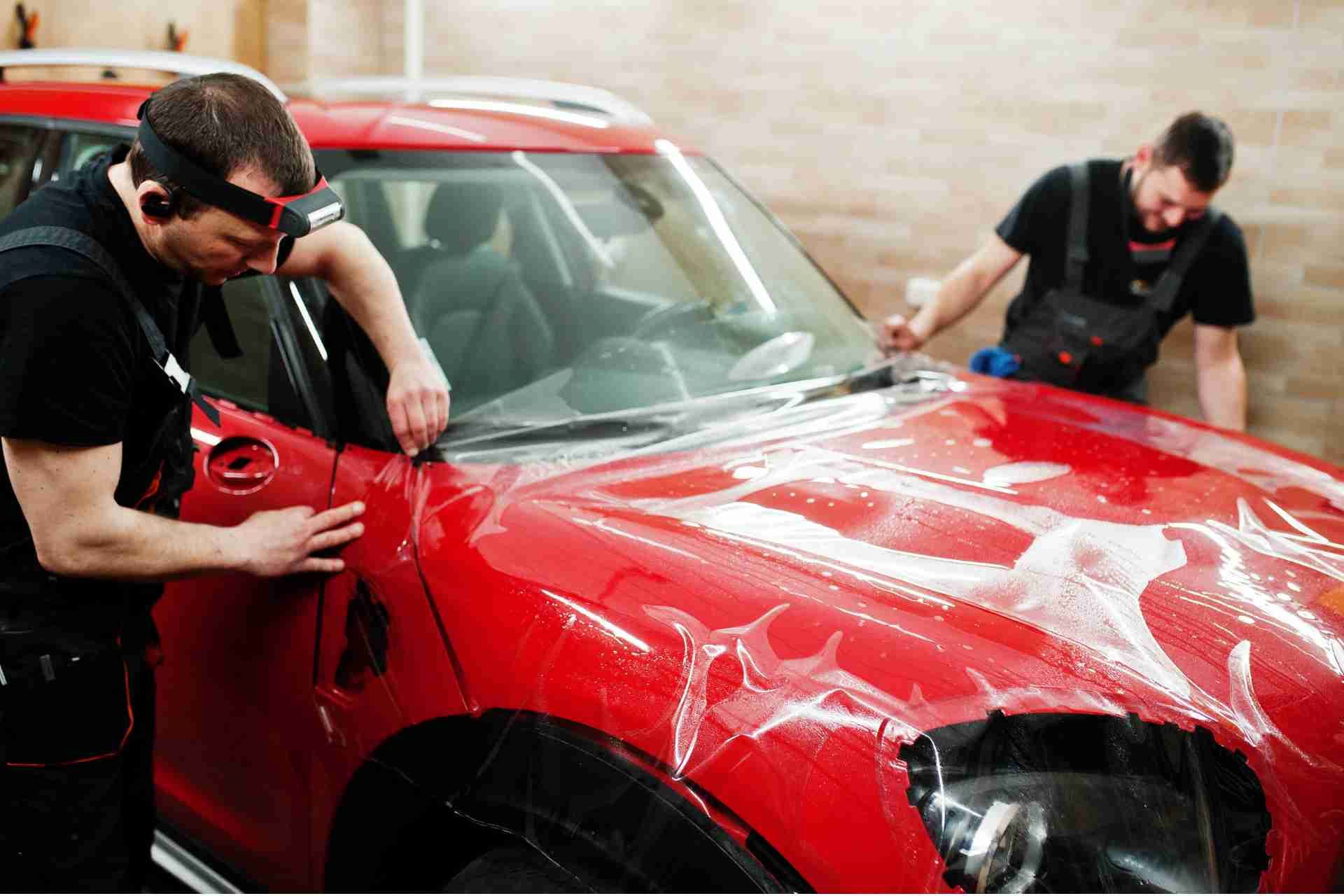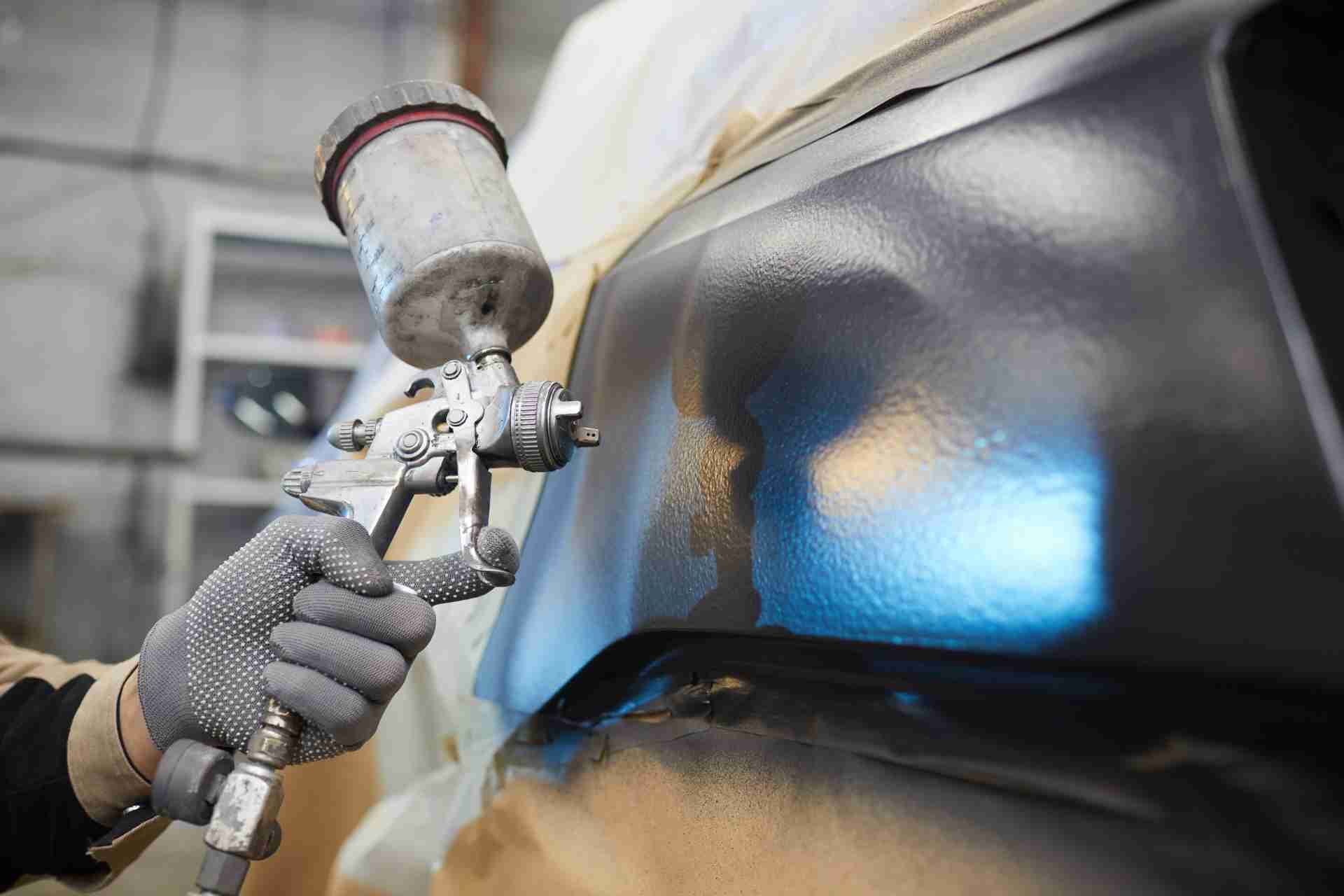Guide to Ceramic Coating vs Waxing a Car
Waxing and ceramic coating are two popular methods for protecting and enhancing the appearance of a car's paintwork. While both options provide a layer of protection against environmental elements, there are key differences between the two that car owners should be aware of before deciding which option is best for their vehicle.
In this guide, we will explore the differences between ceramic coating and waxing, as well as the pros and cons of each method.
What is Ceramic Coating?
Ceramic coating is a liquid polymer coating that is applied to the exterior of a vehicle to protect it from contaminants and damage. It creates a protective layer on the surface of the vehicle that is resistant to scratches, UV rays, road grime, and other environmental factors. Ceramic coatings provide a glossy finish and make the vehicle easier to clean and maintain. They can last for several years, depending on the quality of the coating and how well it is maintained.
How Ceramic Coating Works as Protection?
Hydrophobic properties
Ceramic coatings contain hydrophobic properties, which means they repel water and prevent contaminants such as dirt, dust, and bird droppings from sticking to the surface of the car. This makes it easier to clean the vehicle and also helps to prevent water spots.
Chemical resistance
Ceramic coatings are highly resistant to chemicals such as acids and alkalis, which can damage the paintwork of a vehicle over time. This added protection helps to keep the paint looking new and pristine for longer.
UV protection
Ceramic coatings contain UV inhibitors that help to protect the paintwork from the damaging effects of the sun's ultraviolet rays. This helps to prevent the paint from fading or oxidizing over time.
Scratch resistance
While ceramic coatings cannot prevent all scratches, they do provide an added layer of protection against minor scratches and swirl marks. The hard, durable coating helps to absorb the impact of small particles that may come into contact with the vehicle's surface.
Long-lasting protection
Unlike traditional waxes and sealants, ceramic coatings bond chemically with the surface of the vehicle, creating a long-lasting protective barrier that can last for years. This means that the vehicle will maintain its glossy appearance and be easier to clean for an extended period of time.
Pros and Cons of Ceramic Coating
Pros:
1. Scratch resistance: Ceramic coatings provide a protective layer over the paint of your car, making it more resistant to scratches and swirl marks.
2. UV protection: Ceramic coatings can help protect your car's paint from fading and oxidizing due to UV rays.
3. Easy to clean: The hydrophobic properties of ceramic coatings make it easier to clean your car, as dirt and grime can be easily rinsed off.
4. Long-lasting: Ceramic coatings can last for years if properly maintained, providing long-term protection for your car's paint.
5. Enhanced gloss: Ceramic coatings can enhance the gloss and shine of your car's paint, giving it a new car appearance.
Cons:
1. Cost: Ceramic coatings can be expensive, especially when compared to traditional waxes and sealants.
2. Professional application: Ceramic coatings require a meticulous application process that is best done by professionals, which can add to the cost.
3. Time-consuming: The application process for ceramic coatings can be time-consuming, as multiple layers need to be applied and cured.
4. Limited protection: While ceramic coatings provide excellent protection against scratches and UV rays, they may not provide as much protection against rock chips and other impacts.
5. Maintenance: Ceramic coatings require regular maintenance to ensure their longevity, such as regular washing and reapplication of a maintenance spray.
What is Waxing?
Waxing a car is the process of applying a thin layer of wax to the exterior surface of a vehicle in order to protect the paint and give it a shiny finish. Wax acts as a protective barrier against dirt, UV rays, and other environmental contaminants that can damage the paint over time. It also helps to repel water, making it easier to clean and maintain the car's appearance. Waxing should be done regularly to keep the paint looking its best and to prolong the life of the vehicle's exterior.
How Waxing Works as Protection?
Waxing a car works as protection by creating a thin, transparent barrier on the surface of the car's paint that helps to shield it from harmful elements such as UV rays, dirt, debris, tree sap, bird droppings, and other environmental contaminants. This barrier helps to prevent these elements from damaging the paint and causing it to fade, chip, or corrode over time.
The smooth surface created by waxing helps to repel water and prevent water spots from forming on the paint. This can be especially useful in areas with hard water or during inclement weather when the car is exposed to rain, snow, or sleet.
Pros and Cons of Waxing
Pros:
1. Protects the car's paint from damage caused by UV rays, dirt, debris, and other environmental factors.
2. Enhances the shine and gloss of the car's paint, making it look newer and more attractive.
3. Helps to repel water and keep the car's exterior cleaner for longer periods of time.
4. Can help to fill in minor scratches and swirl marks, improving the overall appearance of the car's paint.
5. Adds a layer of protection against rust and corrosion.
Cons:
1. Can be time-consuming and labor-intensive to apply and buff out properly.
2. Can be expensive, especially if using high-quality wax products.
3. Needs to be reapplied regularly to maintain the protective benefits, which can add to the overall cost and time investment.
4. May not be effective at protecting against more severe forms of damage, such as deep scratches or dents.
5. Can leave behind residue or streaks if not applied correctly, detracting from the overall appearance of the car.
Key Differences of Ceramic Coating and Waxing
Durability
Ceramic coating is much more durable than wax. It typically lasts between 2-5 years, whereas wax needs to be reapplied every few months.
Protection
Ceramic coating provides better protection for your car's paint than wax. It forms a hard, durable layer that is resistant to scratches, UV rays, and other environmental contaminants.
Shine
Ceramic coating provides a more shiny and glossy finish compared to wax. It enhances the color of the car's paint and gives it a deeper, more reflective appearance.
Maintenance
Ceramic coating is easier to maintain than wax. It requires less frequent washing and can be easily cleaned with a mild soap and water.
Cost
Ceramic coating is more expensive than wax, both in terms of the product itself and the labor required for application. However, considering its durability, it may be a more cost-effective option in the long run.
Application
Ceramic coating is a more time-consuming and labor-intensive process compared to waxing. It requires proper surface preparation, application, and curing time to achieve optimal results.
Protection against contaminants
Ceramic coating provides better protection against contaminants such as bird droppings, tree sap, and water spots, as they are less likely to adhere to the surface of the car.
UV protection
Ceramic coating offers better protection against UV rays, preventing the car's paint from fading and oxidizing over time.
Looking to Get Ceramic Coating and Waxing for your Car?
If you're interested in ceramic coating and waxing for your car, visit CV Mobile Auto Spa today. Our friendly staff will be happy to discuss your options and help you choose the best solution for your vehicle. Schedule an appointment with us today and give your car the protection and shine it deserves.


